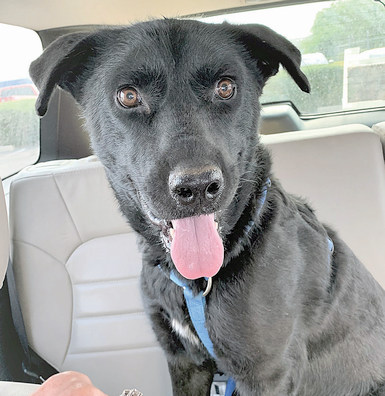By Sarah Layton Wallace

There are far more dogs that need rescuing and/or rehoming than any one organization can possibly take in and rehome. Budgets are one constraint with the high cost of the veterinary care that almost every dog coming into rescue needs. And although the numbers of dogs in need seems endless, the kennel space in shelters is limited, and the number of available fosters is chronically too few to meet the demand.
The irony is that while humane trapping organizations, all-breed rescues, and shelters often are faced with an overwhelming number of dogs that need rescue and rehoming, breed-specific rescues sometimes have the opposite challenge: the huge number of people that want to adopt their specific breed outnumber the dogs of that breed that they have available for adoption.
Collaboration within the rescue community can help to address both challenges. By transferring some dogs to breed-specific rescues, the humane trapping organizations, all-breed rescues, and shelters free up space and resources in their own organizations so that they can take in and adopt out more dogs for which a breed-specific rescue is not a possibility. The breed-specific rescue is able to satisfy another of their approved adopters before that adopter gives up on adopting a rescue dog and instead buys from a breeder.
The benefits to animals that need rescue and/or rehoming are huge and impactful:
Dogs transferred to breed-specific organizations benefit from the breed expertise of the volunteers, fosters, veterinarians, trainers, and adopters that serve the dogs that come into that breed-specific rescue.
Space and resources of all-breed rescues and shelters are freed up to rescue and adopt out the many thousands of dogs that are not candidates for intake to a breed-specific rescue.
When the huge number of interested adopters of specific breeds are able to adopt from a breed-specific rescue, they give a home to a rescue dog instead of creating additional demand for purebred puppies from breeders.
HARTT’s partnership with Desert Labrador Retriever Rescue (DLRR) is a good example of this kind of collaboration. Cheryl Naumann, President and Founder of HARTT, explains it this way: “HARTT’s focus is on the field rescue and humane trapping of shy, injured, and at-risk animals—we rely on our rescue partners to assist us with placing the animals we rescue, if their owners are not located.
“We are thrilled to partner with Desert Labrador Retriever Rescue! Their professionalism, commitment to proper care, and their adoption screening processes, allow our HARTT Labrador ‘alumni’ to find the very best, forever home.”

Recently black Lab mix Norville. who was trapped by HARTT and transferred to DLRR, was placed in a very special, loving forever home where his rare contagious condition cannot be transmitted to another animal.
Hendrix, who was also trapped by HARTT and found to have severely burned paws, was transferred to DLRR where he received much needed veterinary care and healing. Hendrix is now available for adoption through DLRR.
Yavapai Humane Society also has a transfer partnership with Desert Labrador Retriever Rescue (DLRR). Stray Anna, a black Lab mix that needed extensive dental work, and blind chocolate Lab Wesley, an owner surrender who also had dwarfism, were two dogs that benefited from this relationship last year.
This year 10-year-old yellow Lab Banner was surrendered to YHS when his large size and the stairs in the family home became a danger to his owner.

YHS transferred Banner to DLRR where he was placed into a family foster home; a kennel at YHS that would have been filled with Banner was then open to house another displaced pet. Banner has found his forever home with DLRR adopter Tim.
Yavapai Humane Society Executive Director Rich McClish said this about why YHS transfers some dogs to DLRR: “The Yavapai Humane Society works with DLRR because we trust them to do what is right on behalf of the dogs that we transfer to them. DLRR is an organization of volunteers that are professional, reliable, and that truly care about what they do. We also appreciate the proactive communication that we receive from DLRR when it comes to the progress and final status of the dogs that are transferred to them. It is an honor to work with DLRR, and it’s an organization that leverages every donor dollar towards the dogs under their care.”
When the people in all-breed and breed-specific rescue organizations collaborate, all rescue animals win.
Sarah Layton Wallace is the Strategic Communications Coordinator for Desert Labrador Retriever Rescue and coordinates DLRR’s operations in Arizona communities North of Phoenix. She also has volunteered at Humane Societies as a dogwalker. Although she loves rescue dogs of all breeds, Sarah has a special spot in her heart for Labrador Retrievers which she parents, fosters and rehomes.

